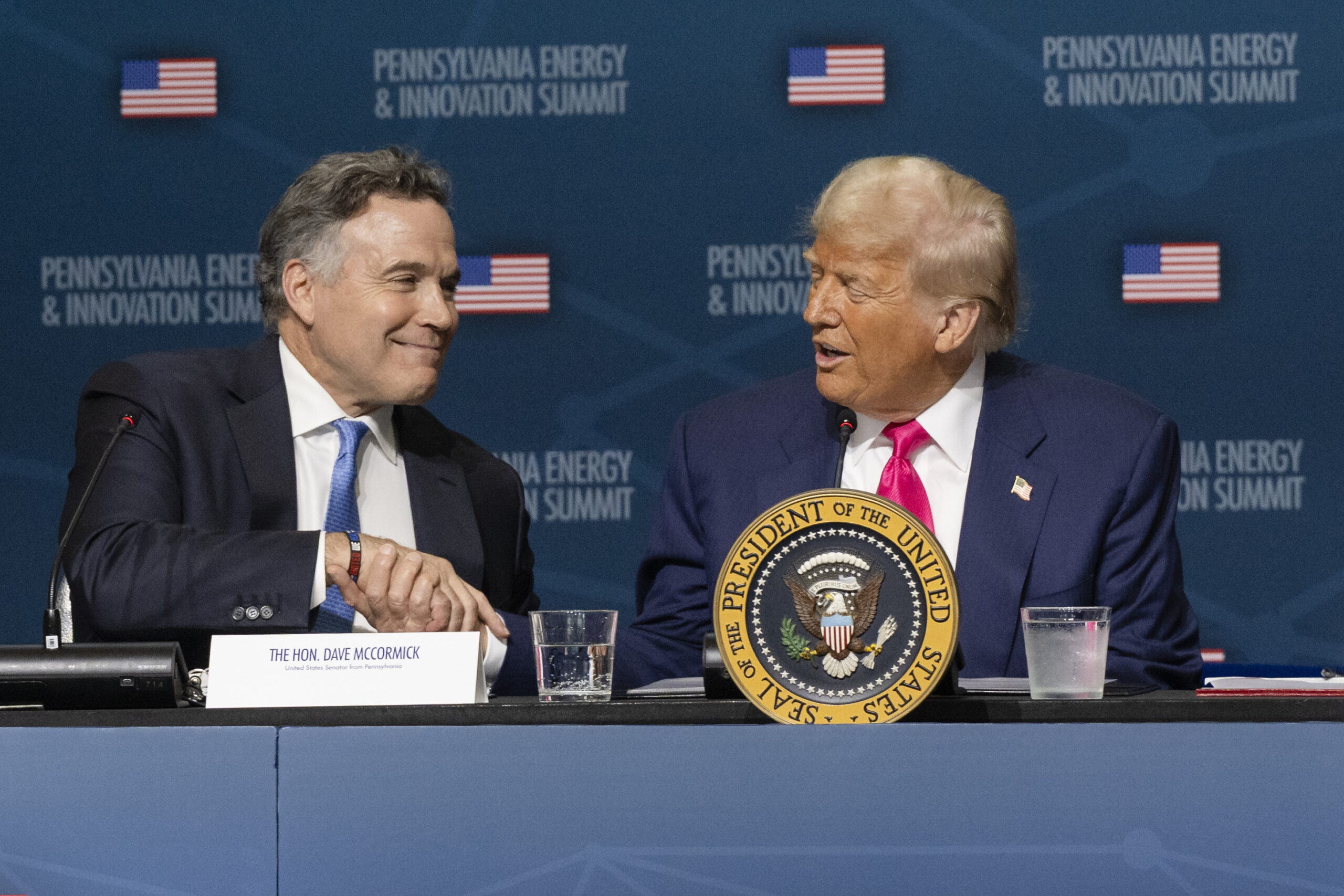
President Donald Trump and members of his cabinet highlighted the surging demand for energy that will be needed to power the growth in artificial intelligence (AI) at an event this week in Pennsylvania.
Pennsylvania Republican Senator Dave McCormick organized an AI and energy summit Tuesday at Carnegie Mellon University in Pittsburgh, where he and other political and business leaders framed the race to develop AI as crucial to economic and national security interests.
“This is a competition we must win,” McCormick said in opening remarks at the event.
Billionaire businessman Jonathan Gray, president and CEO of the asset management firm Blackstone Group, said in a panel discussion at the event that access to energy has emerged as the main constraint on AI.
Courtesy of Carnegie Mellon University
“Energy is the limiting factor,” Gray said. “Unless we get the energy side right, we can’t do this.”
Energy analysts predict a coming spike in electricity demand for energy-hungry data centers. A Department of Energy report in December predicted that electricity use by data centers in the U.S. could nearly triple over the coming three years, consuming as much as 12 percent of the country’s total electricity output by 2028.
Tech companies are racing to secure connections to the electric grid, pouring money into new energy sources and, in some cases, securing their own power supplies. Grid managers, utility companies and regulators, meanwhile, are wrestling with how to meet the growing demand while keeping the power supply affordable and reliable.
Sustainability is also at risk as the AI boom drives up greenhouse gas emissions, knocking many tech companies off target for their net-zero climate goals.
Against this fraught backdrop, one emerging technology seeks to make AI data centers friendlier users of the power grid.
“Our goal is to make these data centers flexible in their power consumption,” Varun Sivaram, CEO and founder of Emerald AI, told Newsweek.
Emerald made waves this month when it announced a $24.5 million round of financing backed by big names connecting the tech, energy and climate worlds, including chip maker Nvidia, former climate envoy John Kerry and Kleiner Perkins chair John Doerr.
Sivaram explained that Emerald’s platform allows grid managers to remotely shift power demand for data centers without affecting AI performance.
“That makes it possible to connect far more data centers to today’s energy system and more efficiently use today’s energy system without a massive build-out of new infrastructure,” he said.
Utility companies and grid managers must plan for peak energy demand—those times when electricity use will be highest across the service area—and build electricity generation capacity to match those peak moments.
Often, some of the most expensive and most polluting sources in a regional power fleet are “peaker plants,” the ones that turn on only at times of peak demand. But if those power companies could better anticipate and control the demand for electricity, they might avoid the need for those extra peak power supplies and reduce the risk of blackouts.
Sivaram said Emerald applies that concept of demand-side management to the special properties of data centers, giving power system managers more flexibility.
“They don’t have to assume that a 200- or 500-megawatt data center is going to ask for its full allocation at that exact, worst moment when everybody’s running their air conditioning on a hot summer day,” he said.
Emerald and some partner companies put the technology to a test recently in Phoenix, a place with a high concentration of data centers and a pressing need for air conditioning.
“I think it was like 96 degrees that day,” he said. “Everyone was using their air conditioning.”
When the local power provider alerted Emerald that peak energy demand was approaching, the company put its platform into action, reducing power consumption by AI chip clusters by 25 percent while the rest of the city needed the most energy.
“We held that lower period of power consumption for three hours, during which time the power peaked and started coming back down,” Sivaram said.
Sivaram said he thinks this approach has the potential to flip the script on the AI energy issue, turning data centers into “grid allies” instead of a potential threat.
“Communities are afraid their rates will go up, their power grid will crash, and these data centers will use diesel generators, which are dirty and create air pollution,” he said. “Emerald AI’s approach to flexibility mitigates all three of these.”
Newsweek will dive further into the issues around data center energy demand during an all-day event in September during Climate Week NYC. Mark your calendar for “Powering Ahead” on Thursday, September 25.
